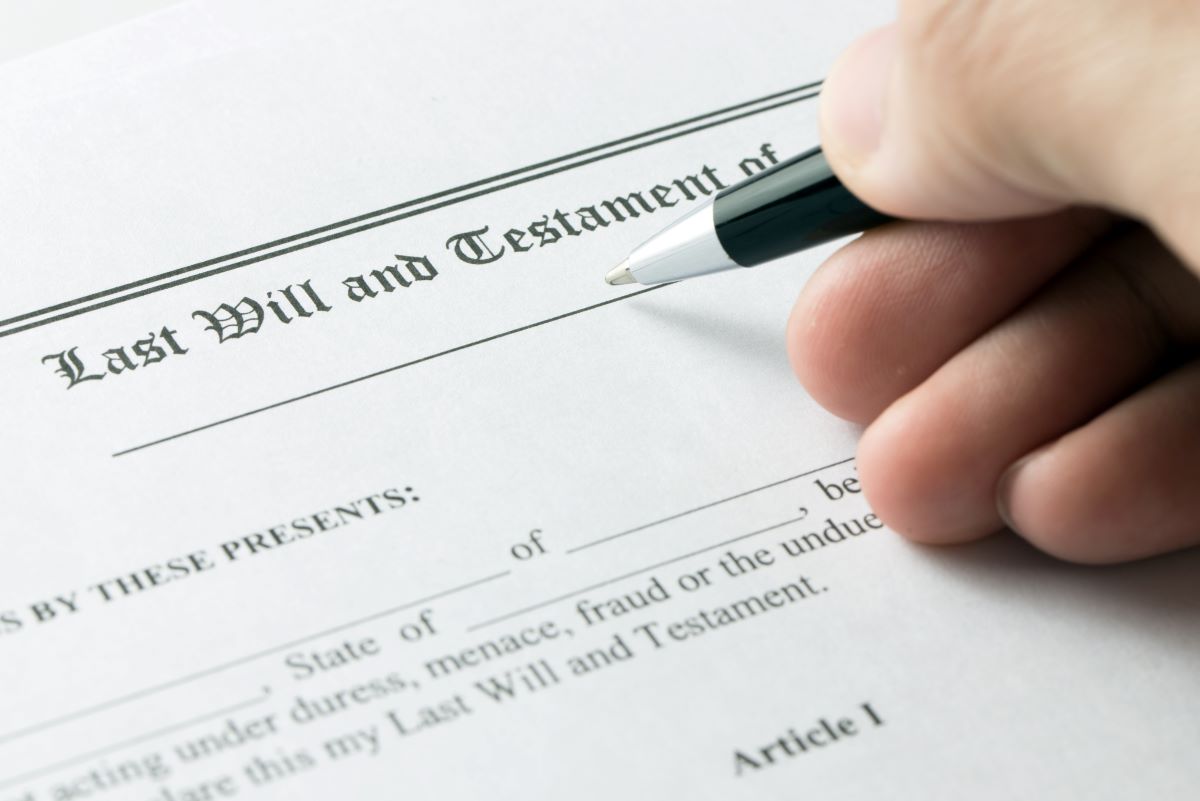Excellent experience start to finish – always very responsive to any queries and the turnaround on the property I was buying was very quick, even in the busy time leading up to stamp duty deadline. Jenny was always very helpful and went above and beyond to close on a short timescale.
When I am instructed to draft a Will for my client, I take care to take instructions not only regarding their property and finances but about their family matters as well.
I often ask the question: Who will look after your children should you die?
Children (minors) and the appointment of guardians is a major part of my work, particularly where young families/parents are concerned.
The topic of children and guardianship is one which overlaps between the two areas of Private and Family law. When considered properly within your Will, an appropriately drafted guardianship clause should give you peace of mind and allay any worries you may have over the welfare of your children should you die before they become adults.
Guardianship: A background
Who has parental responsibility for your child?
All birth mothers have parental responsibility for their children unless otherwise removed by an order from the court or where the child is given up for adoption. Fathers married to the child’s mother (or in a civil partnership) at the time the child is born, will also have automatic parental guardianship for the child and this will continue even if the parents divorce.
An unmarried father will have parental responsibility for a child if he is jointly registered on the child’s birth certificate (from 1 December 2003), has a parental responsibility agreement with the mother or if he has a parental responsibility order from the court.
If a child is adopted jointly, both parents will have joint responsibility for the child.
Who will have guardianship of your child if you die?
If you have parental responsibility for a child you can decide whom will look after your child should you die.
It is a misconception that godparents have automatic responsibility for your child should you die.
The appointment of a guardian can be made in writing – in a deed signed by the person with existing parental responsibility (s5(5) Children Act 1989). An appropriately drafted Will, dated and executed by the existing parent with two signing witnesses can therefore achieve this.
If you have parental responsibility for a child and you die without having appointed a guardian, then if there is no surviving parent the court would be required to appoint someone to be the child’s legal guardian.
The appointment of a guardian would be done in accordance with the child’s welfare and best interests (s1 Children Act 1989). There is a set of guidelines that the court follows in order to determine what is best for the child.
A court decision can of course result in an unwanted outcome; particularly if for instance the parent would not have wanted the court to nominate a person to act as guardian for their child.
Who should you appoint as guardian for your child?
You should appoint someone you can trust.
Factors such as the person’s lifestyle, personality and financial stability should be taken into account. The existing family of the intended guardian should also be considered. Would the guardian be able to look after another child/children? Would your child be comfortable living with the guardian’s existing family?
If you are appointing guardians for your child jointly within mirror Wills between you and your partner, it is important that you try to keep the intended guardians the same. Having separate guardians in two different Wills can cause problems. If the appointed guardians are different, there may be disputes on how the child should be brought up. Issues regarding where they should live, where they should be educated, go to hospital and healthcare could become problems if not properly agreed.
Can you appoint a guardian with conditions?
Sometimes it may not be appropriate to appoint certain people as guardians.
Often for example, a client will have an inclination to appoint grandparents as guardians in their Will. I often ask clients to consider whether this would be appropriate? Age, health and mental capacity are factors to be considered in choosing a guardian as well as their lifestyle and financial stability. Sometimes grandparents might not meet these criteria.
The solution is often to draft conditions into the guardianship clause in order to accommodate for these risks. For example, “Grandfather, Mr Smith is to be appointed as guardian as long as he is willing to be appointed and that he is under the age of 60 at the time of my death”. Alternatively, if the intended guardian has died, lost mental capacity or simply no longer wishes to act, a substitute guardian can be put in place.
It is important to note however that you cannot appoint a guardian and thereafter remove the guardian if they do not meet certain conditions after your death. Once you have died and the guardian has been appointed, only that person (the new guardian) can appoint a new guardian for the minor/child afterwards (s5(3) and (4) Children act 1989).
How is my child supported financially if I die?
An appointed legal guardian is not obliged to pay for or maintain a child out of their own pocket, funds or resources. How then will your child be maintained/paid for if you die?
Residuary Estate
In most cases, there is a residuary amount held in an estate. The residuary amount in an estate is the amount left by someone after the payment of any prior gifts, funeral debts, general debts and testamentary expenses. Essentially, it is the amount leftover in your estate.
This amount is often left on trust for children until they reach a certain age; i.e. 18, 21 or 25 years of age. Although the child will not have direct access to these funds until they reach the prescribed age, the Trustees appointed in your Will will have the power to maintain your children and advance money with the income and/or capital of the estate (s31- 32 Trustee Act 1925). Monies can of course, therefore, be forwarded to the guardian(s) to maintain the child financially.
Pecuniary Legacy
Clients also have the option of leaving a pecuniary legacy to a testamentary guardian that is conditional upon the person actually becoming a guardian of the child. The gift of money can be used by the guardian for instance to improve their current home or use the money to buy a bigger house to accommodate the child. The long run being that the guardian will benefit from the bigger house when the child leaves home.
Letter of Wishes
A letter of wishes is a document signed by you that supplements the Will. Unlike your Will, it is not binding on those dealing with your estate.
By using a letter of wishes you can indicate to your Trustees in your Will how you wish for your estate to benefit your children whilst your money is being held on their behalf. You can express wishes for monies to be used towards education and school fees. Although a letter of wishes is not binding, it can go some way to indicate to the guardian how you would wish for the money to be applied in bringing up the child.
Ideally, for the above examples it is important to ensure that the Trustees in your Will are not the same as your intended guardians. Doing this spreads the risk/responsibilities between the persons appointed and allows for them to be independent of each other.
Get help with your Will
Our experienced Wills & Estate Planning solicitors can help you to plan for the future and ensure your children our taken care of should you die. Alternatively, you can start your Will online. For any additional help or queries, get in touch with our Manchester & Glossop solicitors.
Found this article useful? You might be interested in some of our others:



